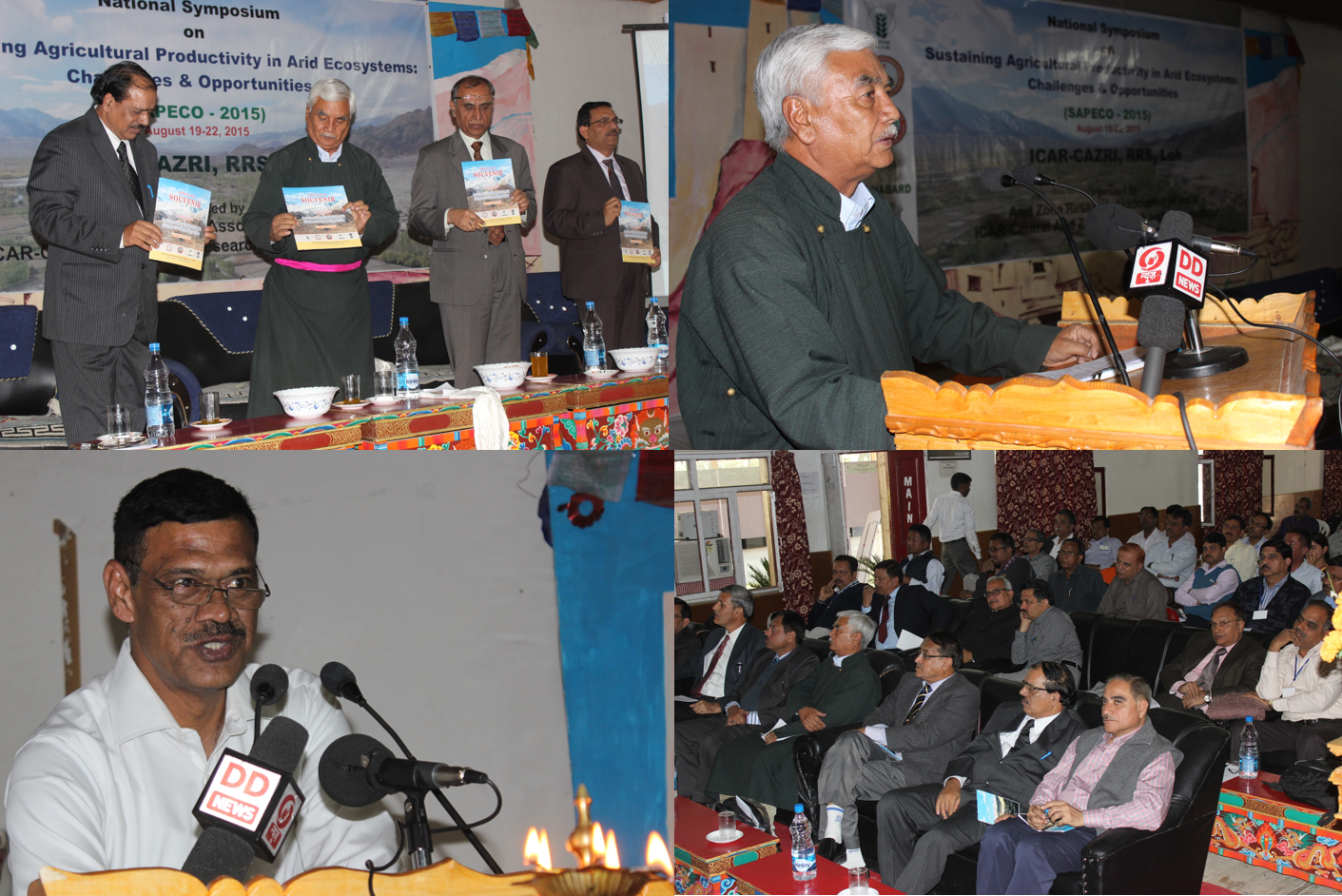National symposium on Sustaining Agricultural Productivity in Arid Ecosystems: Challenges and Opportunities (SAPECO-2015) was successfully organised by Arid Zone Research Association of India (AZRAI) in collaboration with ICAR-Central Arid Zone Research Institute at CAZRI-RRS Leh, Ladakh (Jammu & Kashmir) during 19-22 August 2015. The inaugural function of the symposium was held on 20th August 2015 in the presence of honourable Member of Parliament from Leh, Sh. Thupse Tsewang; Director General IMD Dr. L.S. Rathore and Deputy General Manager, NABARD, Dr. Gyanendra Mani. The symposium was attended by about 70 scientists, professors and researchers from arid regions of the country representing ICAR and SAUs; CAZRI, IISWC Dehradun, CIAH Bikaner, NRCSS Ajmer, CISWH Avikanagar, NRC Yak Dirang, IISS Bhopal, SUKAST Jammu and Kashmir etc and Defence Institute for High Altitude Research (DIHAR). At the outset of the inaugural function, Dr. R.K. Bhatt, Director CAZRI welcomed the participants and briefed about the symposium activities. It has also been mentioned by him that this was the first symposium in cold arid region organised by AZRAI during its 53 years of existence. Dr. L.S. Rathore stressed the importance of the symposium theme in the present context of climate change and its impact on rural livelihood specifically in cold arid regions of the country. Dr. Gyanendra Mani pointed out the importance of financing for successful implementation of technologies in farmers’ field to achieve the suitable rural livelihood. In his chief guest address Sh. Thupse urged to scale up agricultural technologies and ITK for future livelihood of farmers of Ladakh region instead of fully relying on ecotourism considering the natural resource base of the regions. The inauguration session was concluded by vote of thanks by Dr. Anurag Saxena, the Organising Secretary of the symposium.

(Source: ICAR-CAZRI, Jodhpur)
